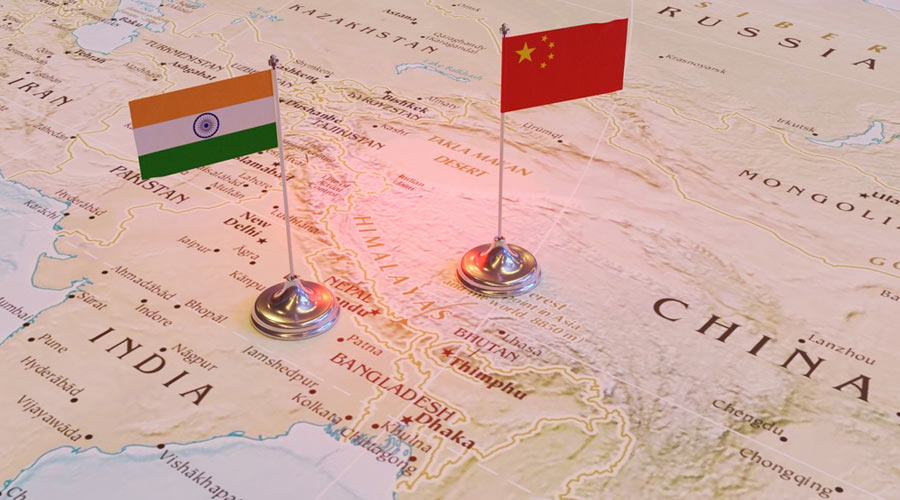
Image Source: telegraphindia
The partnership between China and India has the potential to reshape the global landscape. With their economic prowess, strategic importance, and cultural heritage, these two nations hold great promise for addressing global challenges and advancing shared goals. From a UPSC perspective, understanding this partnership is crucial for comprehending the dynamics of international relations. This article will delve into the intricacies of the China-India partnership, analyzing its global potential across different dimensions.
Economic Cooperation
China and India are the world's two most populous countries, with enormous economic potentials. Both countries have experienced rapid economic growth in recent decades, captivating global markets and investors. By leveraging their complementarities, such as China's manufacturing capabilities and India's service sector expertise, a China-India economic partnership could yield substantial benefits for both nations.
From a UPSC viewpoint, this partnership could redefine the global economic order and create new opportunities for trade and investment. Understanding the intricate trade patterns, bilateral agreements, and economic policies between China and India is indispensable for comprehending the complex world economy.
Geostrategic Implications
China and India share not only economic ties but also a complex geopolitical relationship. From territorial disputes to navigating regional alliances, this partnership has immense implications for regional stability and global power dynamics. UPSC aspirants need to comprehend the intricacies of this relationship to fully grasp the dynamics of Asian geopolitics.
Furthermore, China's Belt and Road Initiative (BRI) and India's Act East Policy reinforce the strategic importance of the China-India partnership. The BRI aims to connect Asia, Europe, Africa, and beyond through infrastructure development, trade, and cultural exchange. India's Act East Policy seeks to strengthen relationships with ASEAN countries and enhance connectivity in the Indo-Pacific region. Understanding these objectives and their implications is crucial for tackling questions on regional security during UPSC examinations.
Cultural Exchanges
The cultural exchanges between China and India date back over 2,000 years, fostering a rich history of mutual influence and appreciation. These exchanges encompass various aspects, including trade, religion, philosophy, art, language, and cuisine. From the spread of Buddhism to the transmission of knowledge along the Silk Road, these interactions have left an indelible mark on the cultural heritage of both nations.
From a UPSC perspective, understanding the historical and ongoing cultural exchanges between China and India is essential for comprehending the intricate fabric of global cultural dynamics. Questions related to cross-cultural interactions often appear in UPSC exams, and a nuanced understanding of the China-India partnership in this context could prove beneficial.
Joint Efforts in Global Governance
China and India are rising powers that hold enormous potential in shaping global governance structures. With their large populations and significant contributions to the global economy, these countries are increasingly asserting their voices on critical global issues, such as climate change, sustainable development, and multilateralism.
From a UPSC perspective, keeping abreast of China and India's positions on global issues is crucial for tackling questions on international relations and global governance. Understanding their stances, alliances, and policy approaches is imperative for aspirants striving to excel in the UPSC exams.
Conclusion
A China-India partnership holds vast global potential across various dimensions, including economics, geopolitics, culture, and global governance. From a UPSC perspective, comprehending this partnership is crucial for gaining a holistic understanding of international relations and global dynamics.
Aspirants should delve into the intricate details of China-India relations, keeping track of trade patterns, geopolitical dynamics, cultural exchanges, and joint efforts in global governance. By doing so, they can acquire the knowledge necessary to tackle UPSC exam questions pertaining to regional security, economic order, cultural interactions, and global governance.